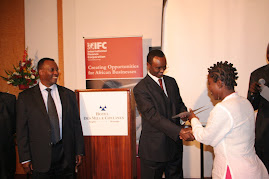CUSTOMER CARE: My customer service experience in Ruhengeri
Last week end, I was at the Kwita Izina ceremony at Kinigi and on our way back, we decided to have lunch in Ruhengeri.
Because of the poor services one usually receives in many restaurants in Kigali, I was initially apprehensive about this idea. But believe me, I was blown away by the quality of the service at Muhabura Restautant.
Many people start their restaurant ventures without putting too much emphasis on excellent customer service. This actually holds the key to success as it forms the essence and lifeblood of any business irrespective of the industry.
All business owners need to ensure that their businesses stay profitable by striving for repeat customers. They need to make first time customers happy so they will come back and also tell others.
In my case with the Muhabura Restaurant in Ruhengeri, I know for sure that I’ll talk about this positive experience to many people starting by you dear reader (and I know you will also talk about this restaurant to your friends).
Though I don’t know the owner, I’m sure my comments and those of other customers are the best and free publicity this restaurant could get.
So here below are the things that made me have such a wonderful and memorable customer service.

The general environment
Watch out for the dust of those artificial plants you have (though I really can’t understand why some use them in a country with so many fresh and beautiful flowers).

What they see in those washrooms make them imagine how hygienic your kitchen is. I have always wondered why the washrooms in this big hotel in Kigali are never clean. They are always leaking, with basically no tissue or dryer for hands.
What struck me at the Muhabura Restaurant was the fact that there were permanently staffs walking around the washrooms to make sure they remain clean and spotless.

Deodorants are a must because the restaurant job is a physical job that makes your staff sweat.
At Muhabura Restaurant, the two waitresses we met were always smiling. They just seemed happy to be there or at least happy to serve us.
We were also impressed by the ability of the staff in speaking basic English and French.
The buffet
I have often disliked some buffets in Kigali where you have many sorts of vegetables with only one animal protein….in most cases, it is only beef and when you don’t eat beef, you have no other alternative.

There is also no need having a kilometric menu if you cannot provide them. Limit your menu to items you can provide. Just make sure that what is written is available.
Departure
This is the last impression that completely blew me up at the Muhabura restaurant. The staff saw us off and opened the car gate for us by wishing us a safe journey and inviting us to come back again.
Wow, we unanimously exclaimed.
Exceptional customer service keeps people coming back and is the most important aspect of your restaurant business, perhaps even more important than any other thing.
Train your staff and motivate them by offering them a positive and conducive working environment. They will then be able to offer memorable moments such as this to your customers.
By following these basic rules you will gain a reputation that will help your business grow and prosper.
sandra.idosou@sheiconsulting.com
The author is a customer service consultant currently working in Rwanda











































